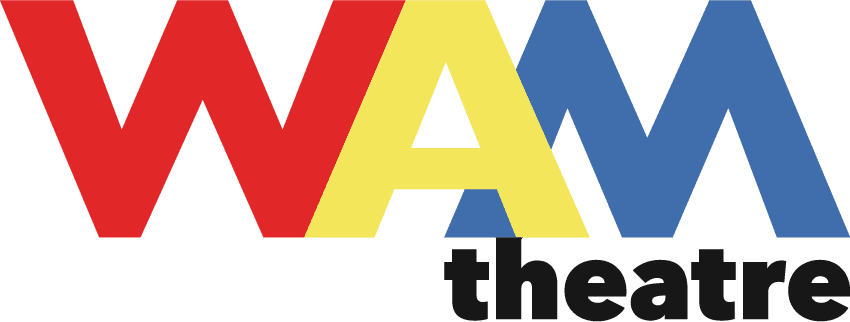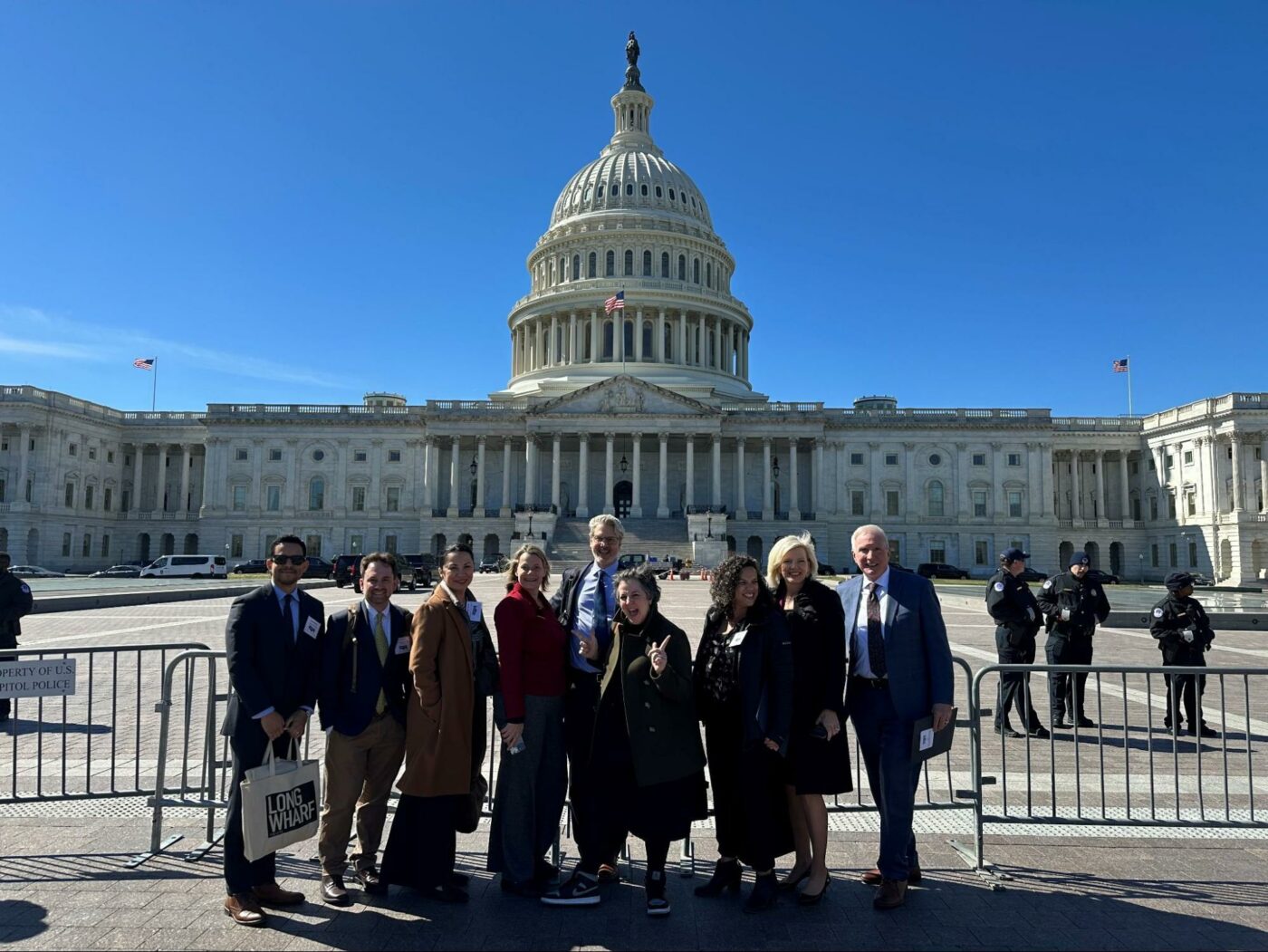WAM’s Producing Artistic Director joins the Professional Non-Profit Theatre Coalition in D.C.
On March 8th, International Women’s Day 2023, Kristen van Ginhoven, WAM’s Producing Artistic Director, was in D.C. lobbying for the first time as part of the Professional Nonprofit Theatre Coalition (PNTC). Read on as Kristen shares more about PNTC, her D.C. lobbying experience, and how it inspired her as she prepares to direct What the Constitution Means to Me.
A few months ago, I saw a photo on social media of a colleague, Teresa Coleman Wash, Executive Artistic Director of Bishop Arts Theatre in Dallas, TX, who said she was in D.C. lobbying with PCNT. I asked if there was a way I could get involved. She generously reached out with their information, and a few months later, after a few online meetings with the full coalition, I was driving to D.C. to join Teresa and other national theatre colleagues to lobby Congress on behalf of the arts.

The first day consisted of an afternoon prep session with Arnold & Porter, the lobbying firm hired by PNTC. Our overall objective was to lobby for increased federal funding for professional nonprofit theatres. We were aiming to expand the coalition’s reach and personalize our industry by sharing stories of how our industry has economic, social, and civic impact. We got some Lobbying 101 tips & tricks, including being respectful of time, treating everyone like they are the decision-maker and expressing gratitude. The training ended with the advice to bring snacks and water plus multiple mentions to wear comfortable shoes.
Before we get to day two, the lobbying day….
Why were we lobbying?
As per the PNTC one-page information sheet we worked from in D.C., before the onset of the COVID-19 pandemic, professional not-for-profit theaters contributed nearly $2.7 billion to the U.S. economy each year. We attracted 39 million audience members annually and employed hundreds of thousands of artists, administrators, and technical production staff.
The pandemic forced our theaters to halt productions and close our doors to communities across the country, dramatically reducing revenues and creating financial instability many theaters still grapple with today.
Throughout 2020 and 2021, our theaters relied on the support available through programs like the Shuttered Venue Operators Grant (SVOG) and Paycheck Protection Program (PPP) to continue to provide free and low-cost programming to our patrons.
Despite these measures, or because they could not access them, many theaters were forced to permanently close as a result of pandemic-induced financial stress. As federal and state COVID-19 restrictions have relaxed and the country has begun to adjust to a new normal, the economic conditions of our theaters have improved, albeit not entirely.
Our audiences have started to return to in-person programming; however, ticket sales have not returned to pre-pandemic levels. While professional nonprofit theaters continue to recover from the pandemic, the PNTC continues to work together to create a sustainable economic future for American theater.
What’s the PNTC?
The Professional Nonprofit Theater Coalition (PNTC) was formed during the pandemic and seeks to advance the thousands of institutions with tens of thousands of workers serving more than 75 million Americans who engage with live theater and the performing arts every year. Theater makers are key contributors to the $850 billion arts and culture economy, contributing 4.5 percent of the nation’s gross domestic product (GDP) each year.
The PNTC is a coalition of artistic, executive, and managing directors representing over 100 nonprofit theaters across nearly all 50 states. The Coalition promotes a lasting partnership between the federal government and the nonprofit theater industry, with a particular focus on preserving American theater through funding and support for arts education, workforce development, and sustainable infrastructure investment.
PNTC’s inclusive and diverse leadership is integral to the cultural and economic life of numerous small and large communities in urban, suburban, and rural areas, as well as Black, Indigenous, and People of Color (BIPOC) focused theaters. Find out more at https://www.pntcoalition.org/.
Our new reality
The pandemic has forever changed the national theatre and nonprofit landscape. For all of us, the period of financial recovery has just begun. Production, travel, and other operating costs continue to rise, as does the cost of providing living wages and equitable benefits to our employees. Plus, private donors and foundations have market sensitivities, audience habits are changing, and it is not yet known whether audiences will return to pre-pandemic levels. In light of these trends, we must find new income streams and partners to sustain our arts and culture organizations.
One of those partners whose aid ensured the survival of so many of our organizations during the pandemic is the federal government. While it’s true the National Endowment of the Arts provides $207 Million in funding each year, those grants are project based and the demonstrated demand by the industry during SVOG was over $2 billion. Now that our realities have changed, that gap must be filled somewhere. Our goal is to be included in other government spending initiatives, specifically around arts education, workforce development, and sustainable infrastructure investment.
As WAM is experiencing the same issues as our colleagues across the country, and we are indeed stronger together, it was integral to be involved in PNTC’s lobbying efforts.
Day Two: The Lobbying Day
I will admit to being nervous going into day two. Very quickly, though, the nerves were replaced by a real sense of contributing to making a change.
The day was energizing, exhilarating, illuminating and powerful. 25 Arts Leaders from across the country formed 7 PNTC teams, and those teams had 54 meetings in total on the Hill. 54 meetings advocating for the future of our professional theatres! I was in a team with James Haskins, Managing Director of the Guthrie Theatre and Kimberly Motes, the Managing Director of Children’s Theatre, both of Minneapolis, Don-Scott Cooper, Producing Executive Director of Le Petit Theatre in New Orleans and Arnold & Porter Senior Policy Specialist, Carly Sincavitch. Together, we powered through meetings all day, quickly getting into the flow together around our talking points. We discovered that many of the strengths we have from being storytellers and fundraisers came in handy when trying to meet with a Legislative Aide and advocate around what America would be like without America’s Theatres!
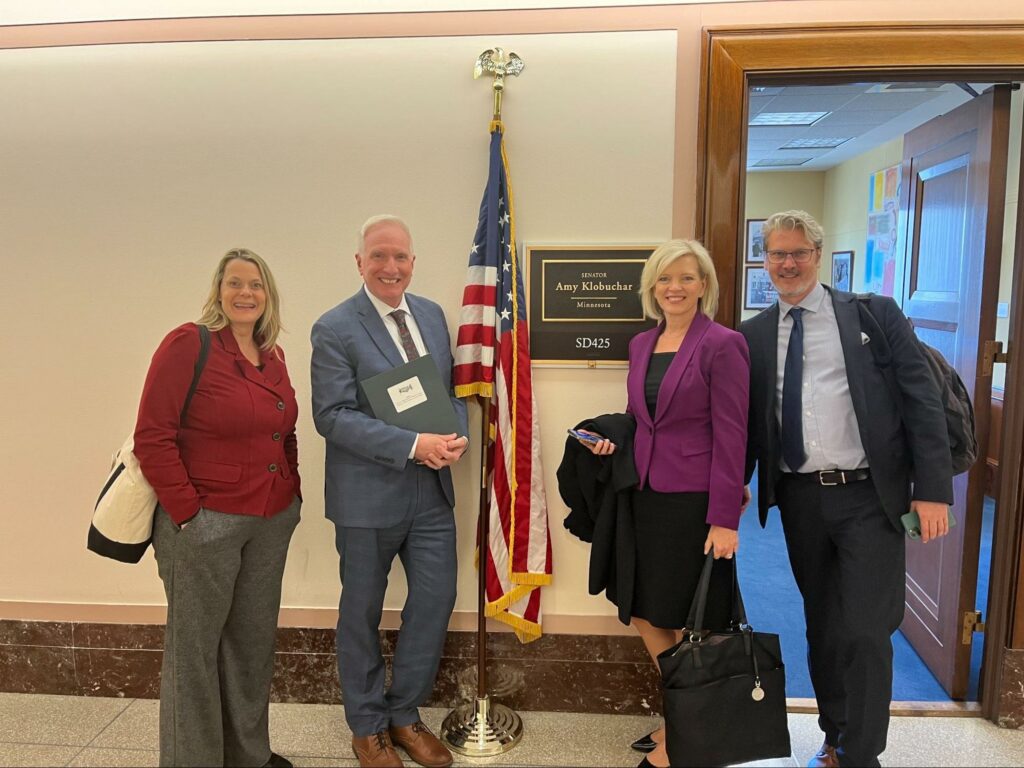
We met with aides in the offices of all three Massachusetts offices- Senator Markey, Warren and Rep Neal – and the Louisiana and Minnesota Rep and Senator offices. We were happily surprised to have an awesome aide in Rep Steve Scalise’s Republican office- which was in the actual Capital- who was in the Thespian Society in H.S., and the warm welcome in Senator Klobuchar’s office was just amazing. I got a picture with the actual Shuttered Venue bill on her wall. She spearheaded that bill and it truly saved our theatres during the pandemic.
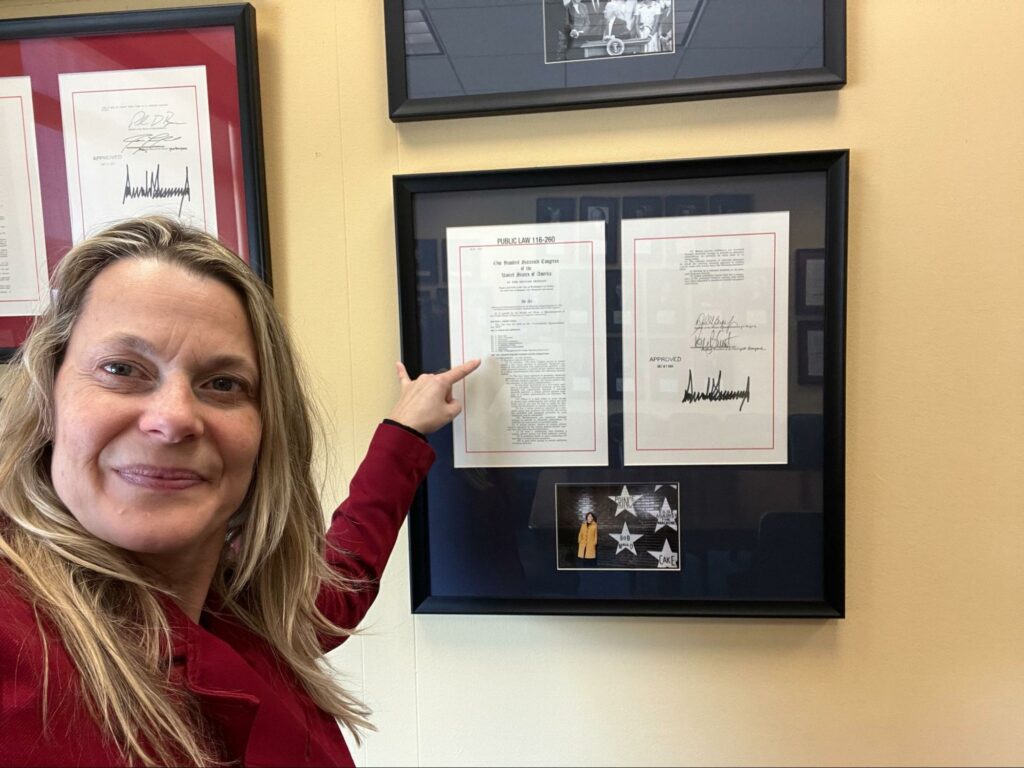
Overall, it was incredible to realize that whether our budgets are $500,000 or $30,000,000, we are all experiencing the same issues. They range from workforce development and retention ‘post’ pandemic when so many folks have left/are leaving our industry to the rising cost of materials to audience habits changing and the market sensitivities of private donors and foundations. Size didn’t matter. Our issues are the same. It was a powerful day with lots of walking to the different buildings that house the offices of our government representatives.
I particularly saw democracy in action in the hallway where Rep Pressley and Rep Taylor-Greene’s offices are across the hall from one another. This captured the day for me- Democracy in action- literally across the aisles. Amazing.
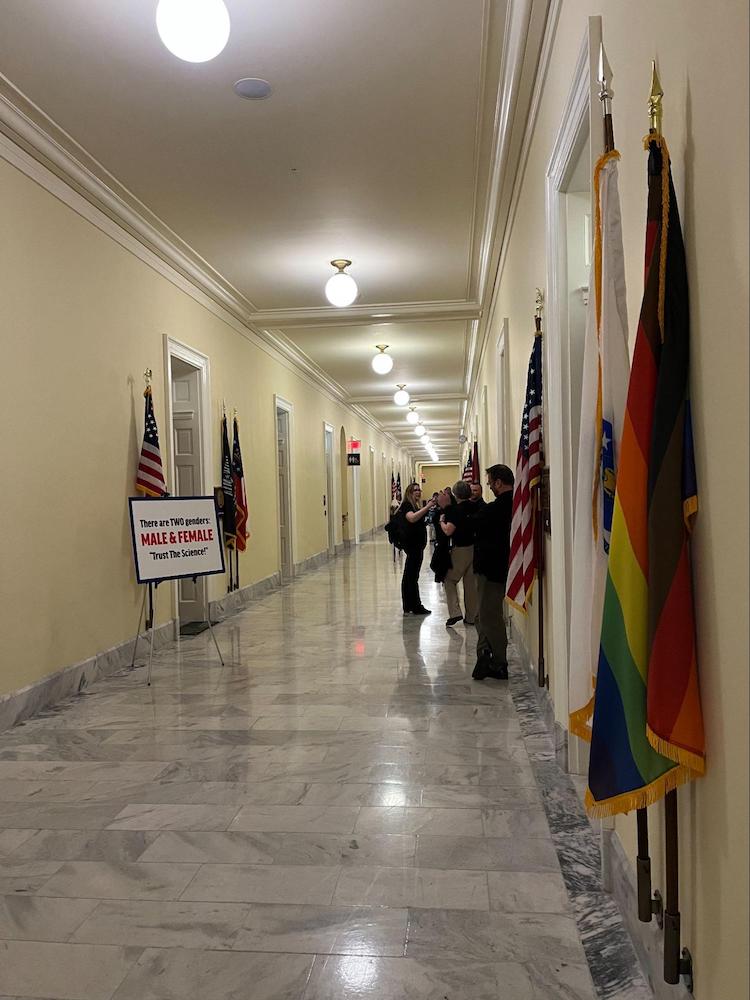
I loved representing WAM Theatre in this advocacy effort and learned so much I can take with me into rehearsals for What the Constitution Means to Me. From realizing there are so many unexpected nuances, such as the aides to the Republican congresspeople being very in touch with what’s going on at the grassroots level of our world in a way we haven’t observed in their bosses, to being wowed by the complexities that is Congress, where aides seemed to be working 70 hour weeks in pretty cramped offices, likely making too little pay in a city that has a high cost of living. Our Arnold & Porter rep, Carly, shared it is the aides, who age between 25-35 usually, that run our country as they are sitting in meetings all day, hearing about the constituent issues and reporting up to their Representative or Senator about where to put their focus. I wasn’t sure whether that made me hopeful or sad or both. They deserve so much more equity and humanity and yet, their pride and pleasure at working on the Hill was evident.
In closing, there is much that is inequitable and toxic about how our government functions and yet, standing outside the Congress, I was awed. The history is palpable- from the gorgeous architecture to the intricate processes involved with entering the building. It was completely mind boggling to imagine the insurrection of January 6th happening there. The buildings call for respect and reverence. They also call for debate and inquiry. It made me even more excited to begin rehearsals for What the Constitution Means to Me where we will dive into rigorous conversations in rehearsals and at performances about whether the Constitution is the source or solution to our problems. I sincerely hope you will join us at the show and have your voice heard just as I had my voice heard on the Hill on March 8th.
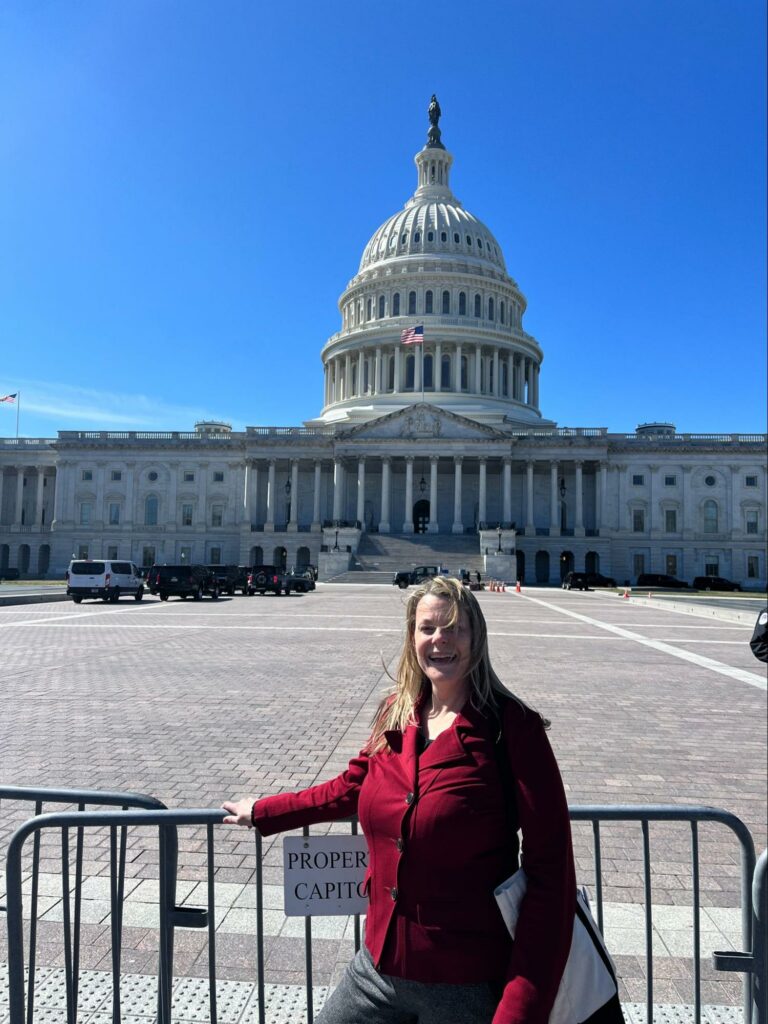
What the Constitution Means to Me by Heidi Schrek plays at the Unicorn Theatre in Stockbridge from May 18-June 3.
